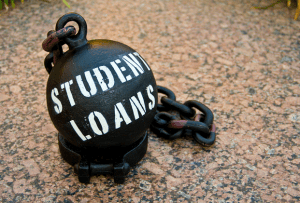Obama Proposes Relaxing Bankruptcy Restrictions for Student Debt
For more than a decade, bankruptcy was not really an option for student debt. Back in 1998, government loans to students were rendered non-dischargeable unless paying off the loans would be a severe hardship for the student. In 2005, private student loans were also rendered non-dischargeable absent a severe hardship. In 2015, President Obama has decided to make student loans the last major policy change of his presidency.
 Last week, the White House rolled out a plan called “A Student Aid Bill of Rights.” The bill has four parts: (1) a state-of-the-art complaint system to ensure quality service and accountability for the Department of Education, its contractors, and colleges, (2) a series of steps to help students responsibly repay their loans including help setting affordable monthly payments, (3) creation of affordable repayment plans based on student debt trends, and (4) every borrower has the right to quality customer service, reliable information, and fair treatment, even if they struggle to repay their loans.
Last week, the White House rolled out a plan called “A Student Aid Bill of Rights.” The bill has four parts: (1) a state-of-the-art complaint system to ensure quality service and accountability for the Department of Education, its contractors, and colleges, (2) a series of steps to help students responsibly repay their loans including help setting affordable monthly payments, (3) creation of affordable repayment plans based on student debt trends, and (4) every borrower has the right to quality customer service, reliable information, and fair treatment, even if they struggle to repay their loans.
The White House’s “bill of rights” mostly talks about consumer protection for repayment of debts. The language of the proposed student bill of rights mirrors the stated goals of mortgage reform after the 2008 housing crisis. Mortgage reform focused on bank honesty and mortgage accuracy rather than homeowner forgiveness. Congress is also in the hands of the Republican Party and there’s no way on earth that the Republicans would simply forgive a majority of student debt. Assuming President Obama is actually serious about passing student loan reform and not just trying to frame the debate for the 2016 elections, than loan repayment has to be the agenda.
I highly doubt that making student loans dischargeable through bankruptcy would actually result in more student loans being discharged. The reason is simple and it’s not merely politics: the federal government holds 90% of all student loans, which amounts to $1 trillion of the $1.2 trillion dollar student debt in the United States! Since $1 trillion is too much money even for Washington D.C. to throw away, the goal of all this student loan reform must be loan repayment rather than loan forgiveness.
Bankruptcy Helps Both Creditors and Debtors
So how would discharging student loans help students repay student loans? Since the current restrictions on student loan discharge are rather harsh, few student loan debtors file for bankruptcy. Fewer than 1,000 people every year try to discharge their loans through bankruptcy.
This is unfortunate because bankruptcy is not solely for debtors. Don’t get me wrong, the main purpose of bankruptcy is to give honest debtors a fresh start. However, bankruptcy judges don’t discharge debts for free. Debtors either have to sell their assets or restructure their debts. Either way, debtors have to repay as much of their debt as they can afford before the bankruptcy court will discharge their debts.
In other words, some creditors might actually get paid during bankruptcy. Many people believe that a debtor repays all their debts or the debtor files for bankruptcy and pays nothing. The reality is that if a debtor is struggling to repay loans, the creditors might not be repaid even if the debtor doesn’t file for bankruptcy. It’s a better deal for creditors to receive half of what they are owed in bankruptcy rather than receive nothing outside of bankruptcy.
Making student loans dischargeable through bankruptcy probably wouldn’t automatically result in more student loans being discharged. The best way to guarantee that student debts aren’t simply erased without repayment is to give student loan creditors a higher priority in creditor repayment. If student loan creditors are first in line, than student loan creditors will be repaid before the debtor’s assets or income runs out.
Even if student loan creditors aren’t given a high priority in repayment, student loan creditors might still get repaid. Bankruptcy is expensive for everybody involved. Bankruptcy courts, like must civil courts, would prefer that cases be settled before they get to the court room. Since student loans were non-dischargeable, student loan creditors had very little incentive to actually talk with debtors other than ask for the money owed.
If student loans were dischargeable, the federal government might actually have to talk to, and negotiate with, student debtors. If private banks are required to negotiate with debtors about their debt, we should expect the federal government to do the same.


Comments